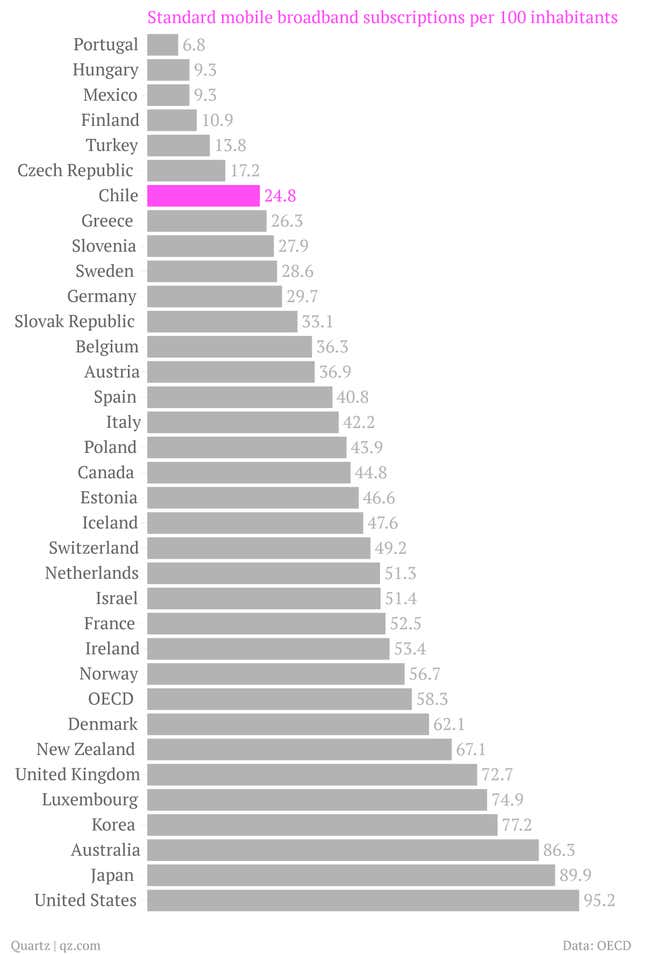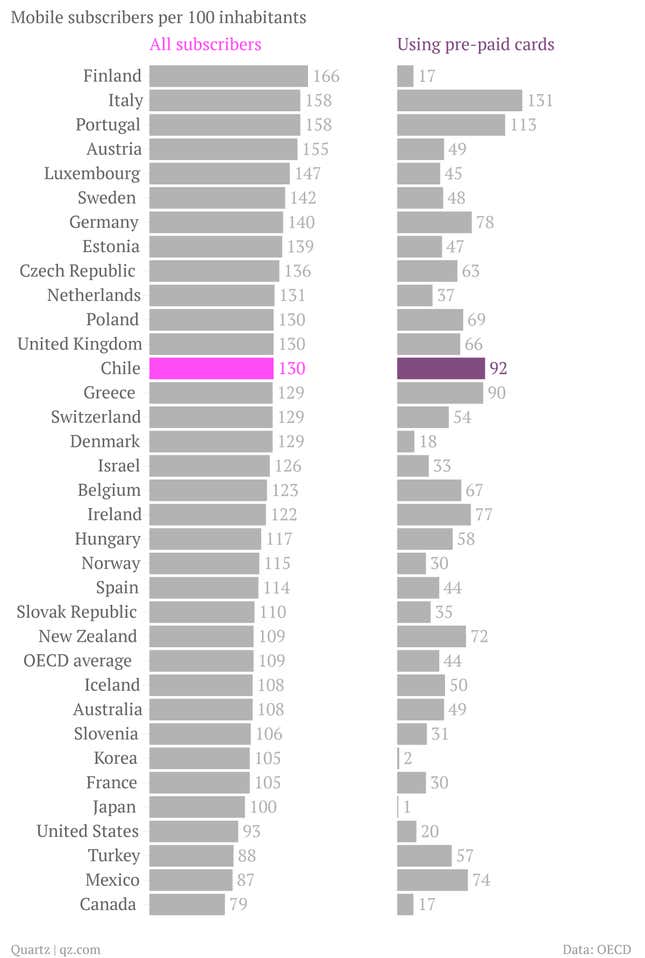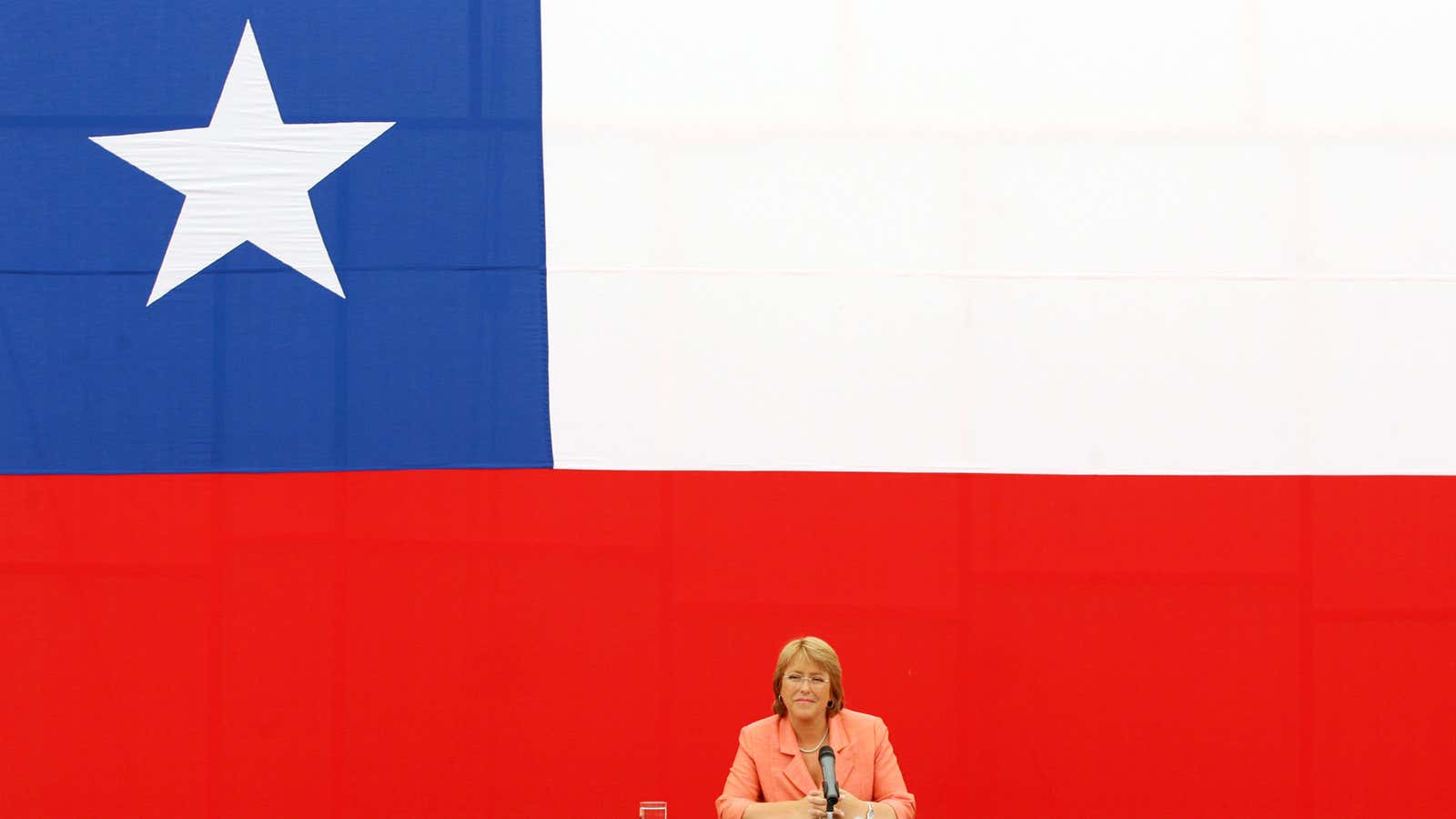Net neutrality is a sore subject in the United States. Proponents argue that allowing big companies to pay for faster data transfers to their customers would disadvantage start-up business that cannot afford such payments. They also say consumers could be forced to pay more for access to data-hungry services such as Netflix. Opponents of net neutrality say that those who use the most bandwidth should also be the ones paying the most for it. After all, the tubes that ferry data around the world are not public utilities—they are private business concerns.
A surprising decision in Chile shows what happens when policies of neutrality are applied without nuance. This week, Santiago put an end to the practice, widespread in developing countries, of big companies “zero-rating” access to their services. As Quartz has reported, companies such as Facebook, Google, Twitter and Wikipedia strike up deals with mobile operators around the world to offer a bare-bones version of their service without charging customers for the data.
It is not clear whether operators receive a fee from big companies, but it is clear why these deals are widespread. Internet giants like it because it encourages use of their services in places where consumers shy away from hefty data charges. Carriers like it because Facebook or Twitter serve as a gateway to the wider internet, introducing users to the wonders of the web and encouraging them to explore further afield—and to pay for data. And it’s not just commercial services that use the practice: Wikipedia has been an enthusiastic adopter of zero-rating as a way to spread its free, non-profit encyclopedia.
Designed to woo new users rather than those already connected to the internet, these free programs do not offer the full, whizz-bang version of the service in question. Facebook Zero is largely text-based; Google only provides access to a few of its services. And smartphones generally cannot access these sites. They are aimed squarely at poorer people with pre-paid connections and older phones.
But Chile’s Subsecretaria de Telecomunicaciones has decided (link in Spanish) that such promotions violate net neutrality laws and must end in two days, on June 1. According to the law (link in Spanish), internet service providers must “not arbitrarily distinguish content, applications or services, based on the source or ownership thereof” (translation by Google).
This is short-sighted. Chile’s mobile internet penetration is low by the standards of the Organisation for Economic Cooperation and Development (OECD), as the chart below shows.

Fixed broadband penetration rates are even lower, running at 13%. (Switzerland, at the top of the heap, boasts 44 wired broadband subscriptions per 100 people.)
Still, Chile’s mobile penetration is higher than several European nations:

That suggests plenty of room for growth. People already have mobile phone connections, even if they are not yet using them to get online. Chile also has the one of the highest rates of pre-paid SIM-card use in the OECD. These pre-paying customers are less likely to pay for expensive phones or newfangled services, and they’re exactly the ones that Facebook, Google, Twitter, and Wikipedia (not to mention local Internet service providers) are trying to coax online.
Chile’s decision means Chileans will now have to pay to find out whether this thing called the internet is really for them. That is one more reason for Chileans to delay adoption of the world’s most transformative technology since electricity.





